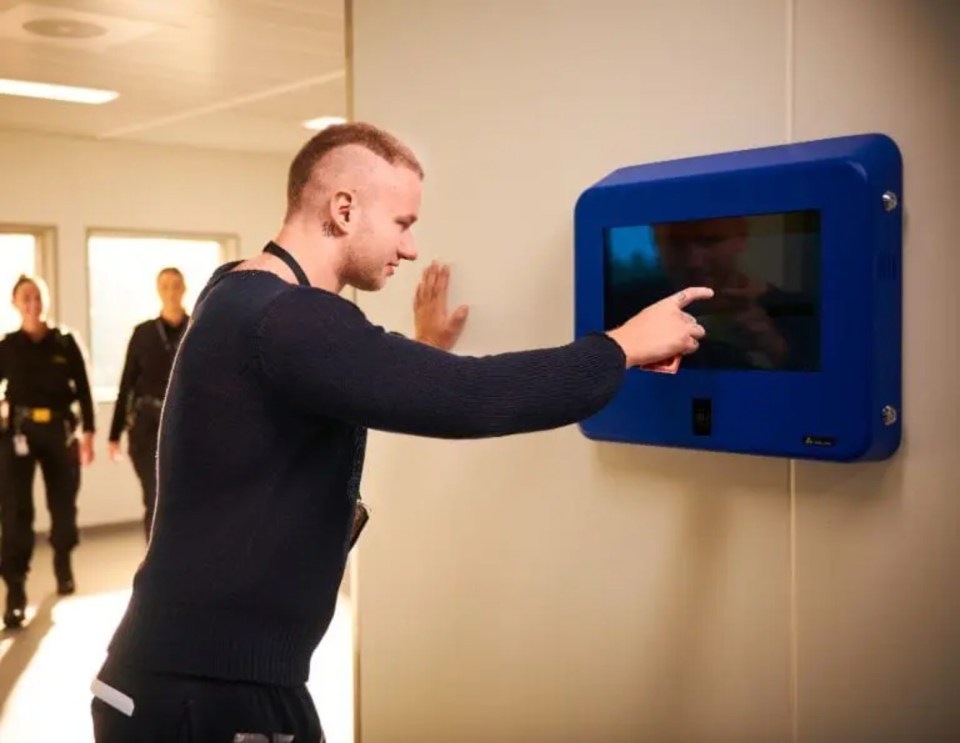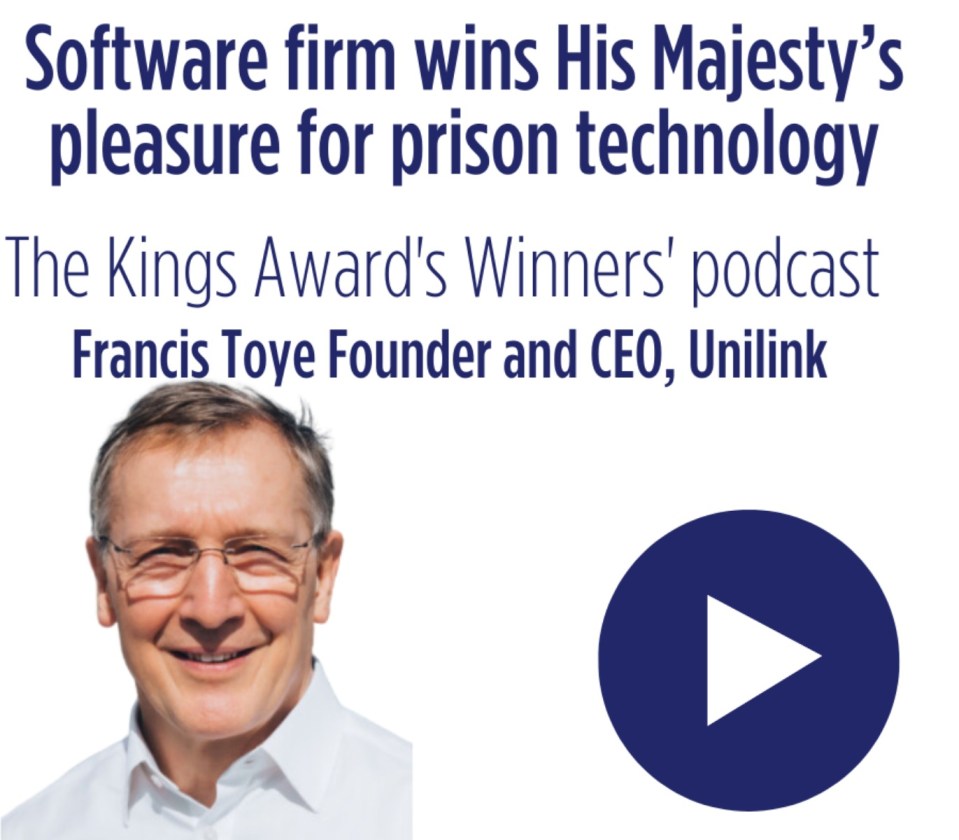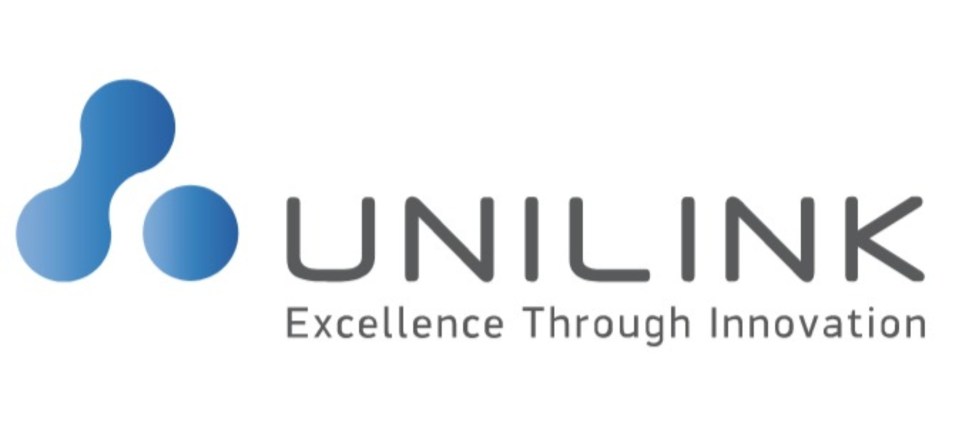Unilink: Software firm wins His Majesty’s pleasure for prison technology

Francis Toye says he always wanted to start up his own business but thought he was maybe too “risk averse”. The opportunity came when he was set free from a 15-year career from IBM following a restructuring process.
With a little redundancy cash and still working with the technology giant as a partner, Unilink was born in 1994.

The company is a real insider, offering software services to prisons and their inmates. Unilink’s solutions and services are now used by over 80 correctional facilities in the UK and increasingly around the globe. During his work with IBM, Francis had developed IT systems for police and detention centres.
This niche proved a valuable one. He then started working with outsourcing giants Serco and G4S as well as the Ministry of Justice to prove and develop his firm’s offender management solutions.

Through these relationships, Unilink has developed a business that is arguably now the world’s leading provider of corrections software.
The London and Newcastle-based company is best known for its kiosks that help friends and family communicate with people in prison and detention. The self-management system provided by Unilink is increasingly seen as key to rehabilitating those who find themselves behind bars.
“It is all designed to make these things work better – that is for the inmates who are in the care of the government in one way or another, and for the people running these systems, which are not easy to do,” says Francis.
“We are trying to help people do it better and more efficiently. And we are trying to create an environment which is better for the inmates, in the sense they keep better contract with their friends and family, because it is able to be better-run it is potentially a more rehabilitative environment.”
York University recently undertook a study that found institutions using Unilink products achieved better outcomes for those in the justice system. “The current theory is the more you can make prison like the outside world, so that the individuals have to take responsibility for what they are doing and their behaviour, the more successful they are likely to be in their release and their future,” says Francis.
Unilink kiosks offer a range of services including for telephone, booking and banking.
For example, the family can pay money in or cash earned doing various tasks inside can be saved, which can then be spent on a catalogue of items that are delivered each week. Bookings such as appointments with doctors or for the gym or even visits can be managed through the self-service system.
Unilink has received a King’s Award for Enterprise for International Trade. The accolade comes after collecting a Queen’s Award for Enterprise in Innovation from Elizabeth II in 2016.
The award recognises how the business has been expanding internationally. It now has operations in Australia and the Netherlands and has recently won a major contract with the Norwegian Correctional Service, the Kriminalomsorgen. Meanwhile its largest international customer is in Belgium.
Francis said the firm will look at the vast US market in time, but for now, he is content to focus on Europe. The company’s clients are now no longer individual institutions but with sovereign nations. This is because Unilink ensures it delivers on its promise to both corrections systems and their subjects.
“We don’t tend now to sell to an individual site. We tend to operate a level of talking to countries,” he says.
“This is a long-term business. We have customers whose view of us is they will be with us for 20 years. The other side of it is if they are paying software revenue, they won’t pay it continually unless they are satisfied with the product – it works both ways.”



